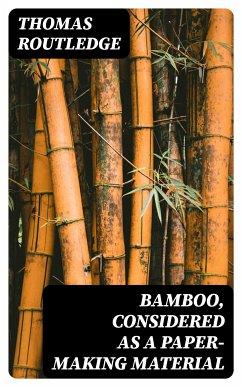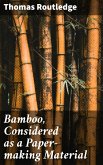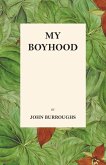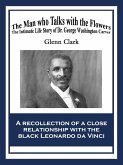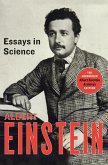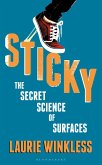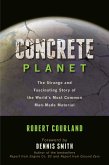In "Bamboo, Considered as a Paper-making Material," Thomas Routledge offers an insightful exploration into the utilization of bamboo in the paper industry. This meticulous work combines empirical research with practical application, meticulously detailing the properties of bamboo that render it an exceptional resource for papermaking. The book skillfully employs a scholarly tone enriched with technical language, allowing for a comprehensive understanding of both the historical and contemporary significance of bamboo as a sustainable raw material. Moreover, it contextualizes bamboo within the global landscape of renewable resources, addressing both its bio-ecological advantages and production challenges. Routledge, a prominent figure in the realm of industrial materials and sustainability, draws upon his extensive academic background and passion for eco-friendly practices to write this pivotal book. His experiences in material sciences and dedication to innovation likely influenced his belief in bamboo's potential to transform the paper industry. With an eye on sustainability, he advocates for an appreciation of unconventional resources, inviting readers to envision a future where sustainability and industry coexist. This book is highly recommended for scholars, environmentalists, and industry professionals alike, served as a critical resource for those interested in sustainable materials and practices. Routledge's rigorous analysis is not only informative but also inspirational, urging readers to reconsider traditional resources and their environmental impact.
Dieser Download kann aus rechtlichen Gründen nur mit Rechnungsadresse in A, B, BG, CY, CZ, D, DK, EW, E, FIN, F, GR, H, IRL, I, LT, L, LR, M, NL, PL, P, R, S, SLO, SK ausgeliefert werden.

